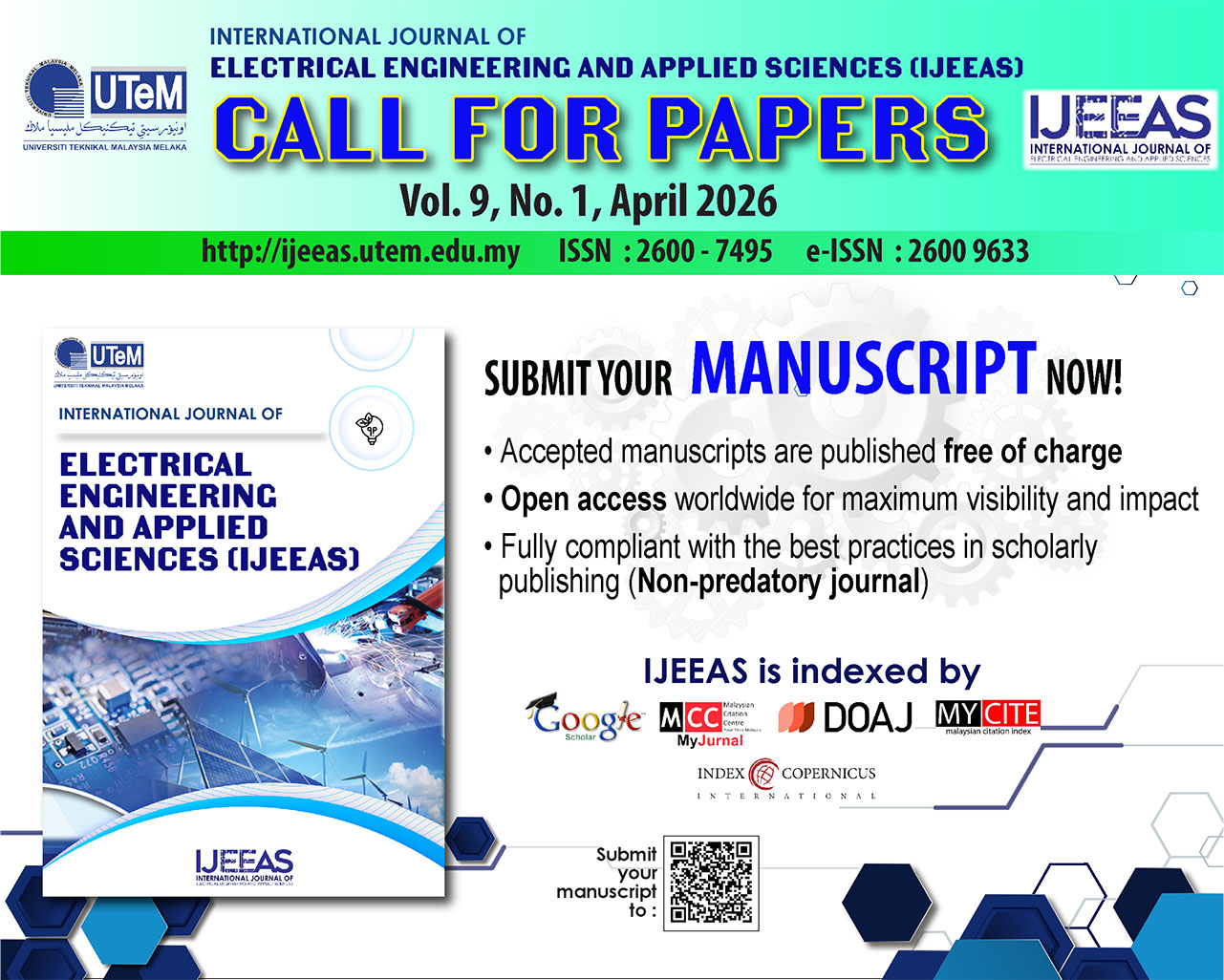B3Ø: Blynk-interfaced Three-Phase Smart Energy Monitoring System
Abstract
This research is focused on the design and evaluation of an installed three-phase smart energy monitoring system with Blynk integration at a state university in the province of Pampanga, Philippines. The main objective of this project was to design a low-cost, precise, and user-friendly solution for the real-time monitoring of electrical parameters in a 230 V three-phase delta transformer bank power distribution system. The system is capable of monitoring voltage, current, power, power factor, and total energy consumption. The prototype’s initial evaluation was done at the distribution utility of Pampanga using a power quality analyzer, and then a field test at the state university, where its performance was compared with the installed utility meter. The test results from different test cases and scenarios indicated that the system possessed a high measurement accuracy, varying within the ANSI C12.1-2008 ±2% threshold. It possessed a low energy measurement error of 0.08% over the testing period. In addition, the system also detected high phase loading imbalances, thus proving its ability to diagnose power distribution inefficiency. Integration of Blynk provides remote monitoring and data visualization, further enhancing its potential in campus energy management. The system was accurate, reliable, and scalable demonstrating itself as a feasible solution for institutional energy monitoring and potential integration into smart grid infrastructures.
Downloads
Downloads
Published
How to Cite
Issue
Section
License
Authors who publish with this journal agree to the following terms:
- Authors retain copyright and grant the journal right of first publication with the work simultaneously licensed under a Creative Commons Attribution License that allows others to share the work with an acknowledgement of the work's authorship and initial publication in this journal.
- Authors are able to enter into separate, additional contractual arrangements for the non-exclusive distribution of the journal's published version of the work (e.g., post it to an institutional repository or publish it in a book), with an acknowledgement of its initial publication in this journal.
- Authors are permitted and encouraged to post their work online (e.g., in institutional repositories or on their website) prior to and during the submission process, as it can lead to productive exchanges, as well as earlier and greater citation of published work (See The Effect of Open Access).







